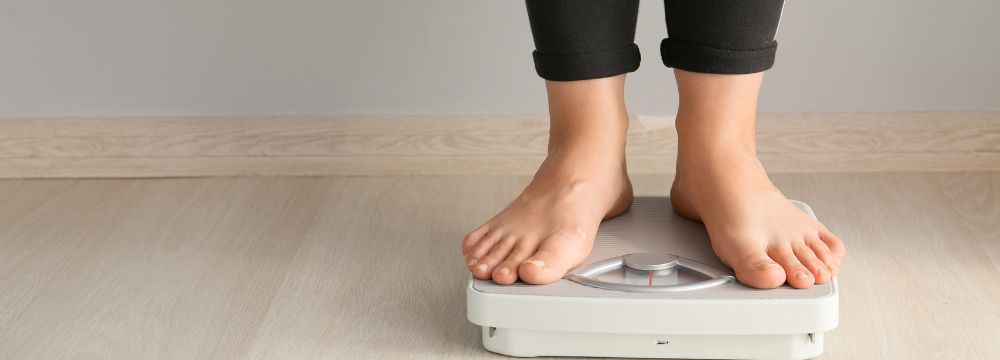
While the term “weight loss surgery” describes a baseline benefit of the bariatric procedures we perform, it doesn’t fully represent the most critical parts of the result – improvement or elimination of obesity and its related diseases or comorbidities, including high cholesterol, high blood pressure, type 2 diabetes, sleep apnea and much more. However, weight loss is such an obvious and easily measured benefit of surgery patients are often primarily concerned with that more than anything else. It would be safe to say most patients bring up their ideal post-surgical weight within the first few minutes of their consultation.
Determining the Ideal Weight Is a Challenge
Giving a patient their ideal weight is challenging for several reasons. First is the BMI or body mass index. While this is the best measure for estimating a person’s normal body weight range, it is objectively inaccurate. For example, it doesn’t consider muscle mass or body structure. It doesn’t even account for gender differences. As such, someone who is considered obese with a BMI of 30 may have significant comorbidities, while someone else with a BMI of 30, let’s say a weightlifter, may be perfectly fit. Therefore, getting to an ideal weight is very much a case-by-case discussion. Are you looking to build lean muscle or bulk up? Do you expect to be in the gym more than a few times weekly? Will you be lifting heavy weights? These questions will give us a better idea of where you could be within a year or two after your procedure.
It’s also important to understand your ideal weight can differ from good health. Ultimately, we are looking to manage, control, or eliminate the diseases and conditions associated with morbid obesity. This means if your blood work comes back with significant improvements in or resolution of serious metabolic concerns, that is even more of a win than losing a few extra pounds.
Of course, we know the aesthetic component of bariatric surgery is essential to most patients. After all, how you look is part of the benefit of bariatric surgery. Here too, weight is not the beginning and end of your journey. You can lose weight by cutting your calories to the absolute minimum, but that does not necessarily mean your body shape will be where you want it. Again, tailoring your exercises, especially your strength training, toward your goals will make a big difference. Muscle mass is significantly denser and thus heavier than the same volume of body fat.
So, What Are the Best Measures of Success After Bariatric Surgery?
First, and most importantly, is disease resolution. We want to see the significant markers of metabolic disease, including blood sugar, cholesterol, blood pressure, and more, all improve or resolve. In an ideal situation, all these diseases would be eliminated, and you would no longer have to take medication. This happens for some patients, while others reduce their medication significantly. This is determined based on periodic bloodwork that we will perform throughout your recovery.
Waist size is also critically important for overall health and is a marker for long-term heart health. Men with a waist size under 40 and women under 35 tend to have a lower cardiovascular risk than their counterparts with larger waist sizes. In many cases, it has been shown that waist size may be a better predictor of heart health than BMI.
Renewed self-confidence and better management of mental health concerns (like anxiety, depression, and more) are a big part of the benefits of bariatric surgery. As we lose weight and feel better, we get out and about. Social and career opportunities are typically open for patients who have had bariatric surgery. Studies have shown single patients at the time of their bariatric surgery are more than twice as likely to get married after they have the surgery, for example.
And, of course, weight loss. We will discuss how much weight you can lose with each procedure, but we are going off the averages. You may do better or worse, depending on your willingness and ability to follow the postoperative lifestyle protocols,
The Bottom Line
While weight is the most tangible measure of success, and it’s what everybody talks about in their testimonials, as surgeons, we always want our patients to understand the benefits of bariatric surgery, which goes much deeper than just the number on the scale. Remember why you had surgery in the first place – to get healthier. There are many health markers to consider, and if you focus only on weight loss alone, the postoperative process can be frustrating. Instead, we want you to appreciate the mental health, body shape, and blood work improvements you will see if you follow your prescribed postoperative lifestyle.
In the meantime, we look forward to seeing you at your initial consultation. We encourage you to ask us any questions on your mind, including how much weight we expect you to lose. To help you with that process, we’ve listed five good questions our patients should ask during the first consultation.










